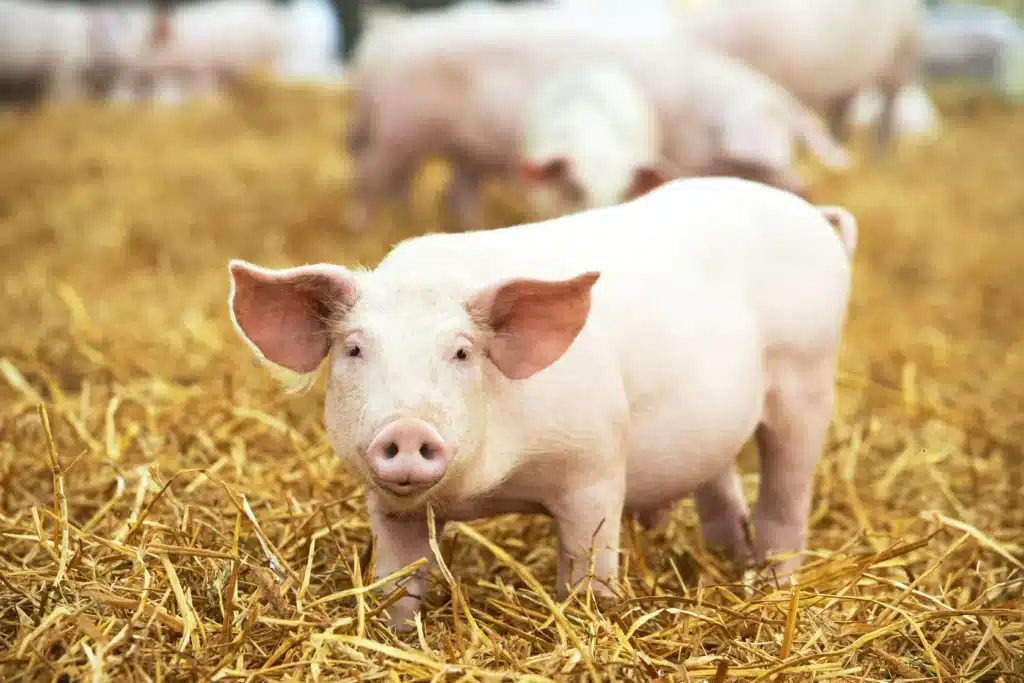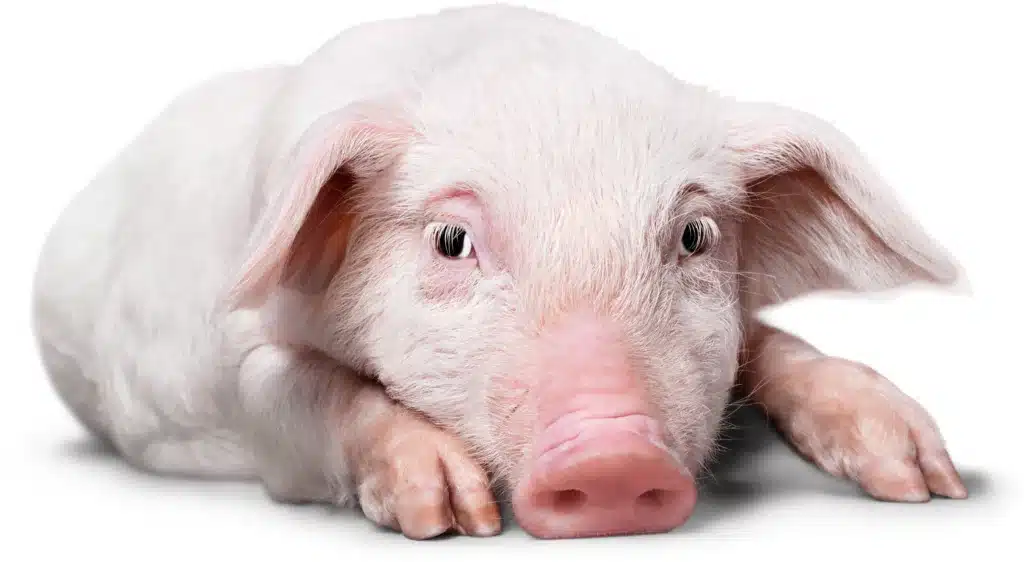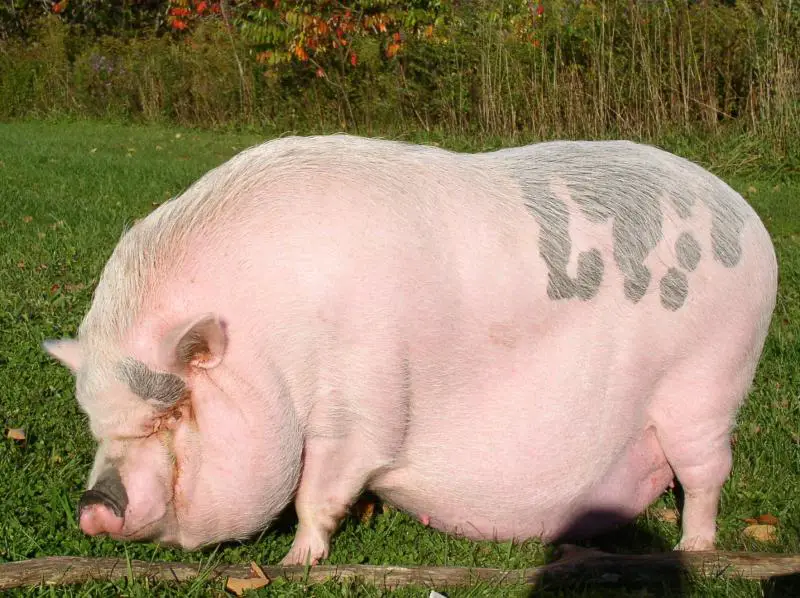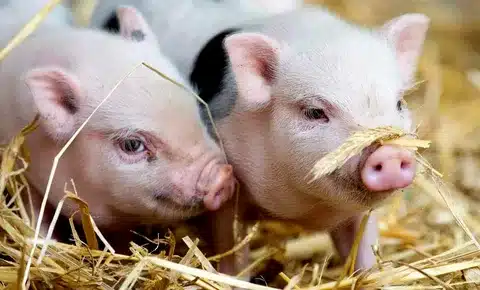Introduction
What Do Pigs Symbolize: Pigs have held symbolic significance in various cultures and contexts throughout history. These animals, known for their distinctive characteristics, have often been associated with a range of symbolic meanings and interpretations. The multifaceted symbolism of pigs, touching upon their representations in religion, folklore, and cultural beliefs. From their role as symbols of abundance and fertility to their association with gluttony and impurity, pig sneeze offer a rich tapestry of meanings that reflect both human attitudes and values. The cultural and symbolic significance of these remarkable creatures and gain insights into the diverse ways they have shaped our collective understanding of the world.
Pigs have held symbolic significance in various cultures and contexts throughout history. Their symbolism often varies, reflecting the diverse attitudes and interpretations attributed to these animals. In some cultures, pigs are seen as symbols of abundance, prosperity, and fertility. Their prolific breeding habits and the large litters they produce have led to associations with prosperity and wealth.
Conversely, pigs are also associated with gluttony, excess, and impurity in some cultural and religious contexts. This view is linked to their omnivorous diet and their reputation for indulging in whatever food is available, which has sometimes led to negative connotations.

What do pigs symbolize in literature?
Pig names are used as epithets for negative human attributes, especially greed, gluttony, and uncleanliness, and these ascribed attributes have often led to critical comparisons between pigs and humans.
Pigs have long held a prominent place in literature, where they serve as versatile and rich symbols that carry a multitude of meanings. Their symbolic significance in literature can be categorized into several key themes.
Gluttony and Excess
In many literary works, pigs are used as symbols of gluttony and excess. Their voracious appetite and tendency to overindulge in food make them powerful metaphors for human greed and overconsumption. Authors often employ pigs to critique societal extravagance and moral decay.
Transformation and Metamorphosis
Pigs have also been associated with transformation and metamorphosis. In some tales, characters undergo a literal transformation into pigs, reflecting themes of degradation or a loss of humanity. Such transformations often symbolize the consequences of immoral actions or hubris.
Social and Political Commentary
Pigs frequently appear in literature as vehicles for social and political commentary. George Orwell’s “Animal Farm” is a prime example, where the pigs represent political leaders and their descent into corruption, illustrating the dangers of totalitarianism.
Innocence and Vulnerability
On a contrasting note, pigs can symbolize innocence and vulnerability in literature. Their gentle and docile nature can evoke empathy and compassion in readers, as seen in characters like Wilbur in E.B. White’s “Charlotte’s Web.”
Cultural and Mythological References
Pigs also draw from cultural and mythological references, such as the Chinese zodiac, where they represent qualities like diligence and sincerity.
What does the pig symbolize in life?
Pig Symbolism and Meaning
While most Western cultures understand pigs to be symbols of gluttony or slovenliness, some Eastern traditions connect the pig with good luck and prosperity. In China, for example, pigs are associated with status, wealth, prosperity, honesty, and virtue.
The Pig as a Symbol in Life
Pigs hold diverse symbolic meanings in various aspects of life, often reflecting cultural, historical, and personal interpretations. Their symbolism can be categorized into several key themes.
Prosperity and Abundance
In many cultures, pigs symbolize prosperity and abundance due to their prolific breeding and the large litters they produce. This association with fertility and wealth has made them a popular symbol for good fortune and economic success.
Resourcefulness and Adaptability
Pigs are known for their adaptability and resourcefulness. They thrive in various environments and make efficient use of available resources, which can symbolize qualities such as resilience, flexibility, and practicality.
Sensuality and Indulgence
On the flip side, pigs are often associated with sensuality and indulgence, primarily due to their reputation for enjoying food and comfort. This symbolism can represent the human tendency to seek pleasure and gratification.
Gluttony and Excess
Pigs also symbolize gluttony and excess in some contexts. Their voracious appetite and tendency to overeat are used as metaphors for human greed, overconsumption, and moral decay.
Transformation and Change
In certain cultural beliefs and mythologies, pigs symbolize transformation and change. They may be linked to rites of passage or personal growth, signifying a transition from one phase of life to another.
Misfortune and Dirtiness
In some cultures, pigs are associated with negative qualities like filth and impurity. This perception can be traced back to religious and historical factors, where pigs were considered unclean animals.
What does pig symbolize in love?
Pigs are also said to be a sign of virility, as they bear large litters. As such, symbols of pigs are sometimes displayed in the bedrooms of couples trying for children. It is believed that the ancient Egyptians had both negative and positive associations with the pig.
The Pig as a Symbol of Love
Pigs, often considered symbols of love, can convey various aspects of affection and relationships in different cultural and symbolic contexts. Their symbolism in love can be broken down into several key themes.
Loyalty and Devotion
Pigs are known for their loyalty and devotion to their families. This characteristic has led to their use as symbols of unwavering love and commitment in some cultures. Pigs mate for life, emphasizing the idea of lifelong partnership and fidelity.
Fertility and Family
Pigs’ reputation for prolific breeding has linked them to themes of fertility and family in the symbolism of love. They symbolize the desire for a loving and fruitful family life, and they are often associated with wishes for a harmonious and large family.
Playfulness and Joy
Pigs’ playful and cheerful nature can symbolize the joy and happiness that love brings into people’s lives. Their playful antics represent the lighthearted and fun aspects of romantic relationships.
Emotional Connection
The sociable and affectionate behavior of pigs in their interactions with one another can symbolize the deep emotional connection and bonding that love fosters between individuals. Pigs snuggle and seek physical closeness, reflecting the importance of intimacy in love.
Protection and Nurturing
Pigs are protective and nurturing parents, often serving as symbols of the protective and caring nature of love. They represent the desire to provide and care for loved ones, ensuring their well-being and happiness.
What does pig represent spiritually?
Pigs may be used to mean success in spirituality. Seeing a pig in a dream or encountering one may suggest that success is on its way to coming and that you should do everything in your power to receive it.
Pigs as Spiritual Symbols: A Multifaceted Perspective
The spiritual symbolism of pigs carries diverse meanings across different cultures and belief systems. These representations often reflect deeper spiritual, moral, and ethical aspects of human existence. Here, we explore some of the key spiritual connotations associated with pigs.
Uncleanliness and Impurity
In many spiritual traditions, particularly in Judaism and Islam, pigs are considered unclean animals. Their representation in this context underscores the significance of purity and cleanliness in religious practices and the avoidance of impurities in one’s life.
Transformation and Renewal
Some cultures view pigs as symbols of transformation and renewal. Pigs are associated with cycles of life, death, and rebirth, signifying the idea of constant change and regeneration in the spiritual journey.
Symbol of Abundance and Prosperity
In certain spiritual contexts, pigs are regarded as symbols of abundance and prosperity. Their prolific breeding and the concept of the “fat pig” represent blessings and material wealth that can be attained through spiritual devotion and ethical living.
Slaughter and Sacrifice
Pigs have also played roles in sacrificial rituals in various religious practices. Their symbolism in such instances often represents the offering of one’s worldly possessions or even one’s ego in pursuit of spiritual enlightenment.
Sacred Guardians
In some indigenous and animistic belief systems, pigs are seen as sacred guardians or spirit animals. They are revered for their perceived connection to the spirit world and are believed to offer protection and guidance.
Why are pigs sacred?
Marija Gimbutas, in her keystone work The Godddess and Gods of Old Europe, writes that ‘the fast-growing body of the pig will have been compared to corn growing and ripening, so that its soft fats apparently came to symbolize the earth itself, causing the pig to become a sacred animal probably no later than 6000 BC.
In some cultures, pigs are symbols of wealth, abundance, and prosperity. The Chinese New Year often features the “Year of the Pig,” symbolizing good fortune, happiness, and wealth. This association is rooted in the pig’s ability to reproduce quickly and provide a bountiful source of food.
Pigs as Symbols of Gluttony and Excess
On the flip side, pigs have been used as symbols of gluttony and excess. Phrases like “eating like a pig” or “living in a pigsty” connote indulgence and untidiness. This symbolic use highlights the negative aspects of overconsumption and lack of self-control.
Pigs in Pop Culture
In modern pop culture, pigs often appear as lovable and relatable characters. From Piglet in A.A. Milne’s “Winnie-the-Pooh” to the Muppets’ Miss Piggy, these characters embody traits such as innocence, vulnerability, and humor. They serve as a reminder of our shared human experiences.
Pigs and Environmental Concerns
In recent times, pigs have taken on new symbolism related to environmental issues. The industrial farming of pigs has raised concerns about animal welfare, environmental degradation, and health risks. Pigs have become symbols of the complex relationship between humans, animals, and the environment, prompting discussions about sustainable agriculture and ethical treatment of animals.
In some communities, particularly among the Adivasi tribes, pigs have ethnographic significance and are raised for their meat, which plays a vital role in cultural and social practices.
What do pigs represent negatively?
Pigs are often associated with negative labels such as ‘filthy’, ‘lazy’ and ‘greedy.
Pigs, despite their positive associations in some contexts, also carry negative symbolism in various cultures and belief systems. This dualistic representation reflects the diverse interpretations and attitudes attributed to these animals.
Impurity and Filth
Pigs are commonly associated with impurity and filth in many cultures, particularly in religions like Judaism and Islam. Their reputation for rolling in mud and their omnivorous diet contribute to this negative symbolism. In these contexts, pigs are considered unclean animals, and their consumption or association is discouraged.
Gluttony and Excess
Pigs’ voracious appetite and tendency to overeat have led to their association with gluttony and excess in various cultural contexts. They are often used as metaphors for human greed and the perils of indulgence.
Moral Decay
In literature and folklore, pigs can symbolize moral decay and decadence. Their portrayal as wallowing in their own filth and selfishness underscores the negative consequences of selfish or immoral behavior.
Stubbornness and Ignorance
Pigs have been used as symbols of stubbornness and ignorance in some stories and myths. Their perceived lack of intelligence and their single-minded focus on satisfying their desires serve as metaphors for individuals who refuse to learn or change their ways.
Negative Omens
In certain superstitions and folk beliefs, seeing a pig or encountering one in a dream is considered a negative omen. Such encounters may be interpreted as warnings of impending misfortune or financial loss.
Is pig a symbol of luck?
Pigs are a popular symbol of good luck. The origins of this belief can be found in the Middle Ages, when the animals were considered a sign of prosperity. Not only were pigs omnivores and therefore relatively easy to feed with scraps, but they also reproduced very quickly, giving their owners a constant food resource
In various cultures around the world, the pig is indeed regarded as a symbol of luck and good fortune, often representing different aspects of prosperity and positivity.
Wealth and Prosperity
Pigs are frequently associated with wealth and prosperity due to their prolific breeding habits. Their ability to give birth to large litters of piglets symbolizes abundance and financial success. In some cultures, pig-shaped piggy banks are popular symbols of savings and wealth accumulation.
Fertility and Family
The pig’s reputation for fertility has led to its association with family and fertility. In some traditions, pig statues or imagery are believed to bring about happiness in marriages and encourage the birth of healthy children.
New Year’s Symbolism
In Chinese culture, the pig is one of the twelve zodiac animals, and each year is associated with one of these animals in a twelve-year cycle. The Year of the Pig is often seen as a time of good fortune, wealth, and prosperity.
Protection and Luck Charms
Pig-shaped amulets, charms, and figurines are used as talismans to ward off negative energies and attract good luck in various cultures. These symbols are believed to bring protection and positive energies into one’s life.
The Lucky Pig
In some European and American folklore, the pig is considered a symbol of luck and is often depicted with a four-leaf clover in its mouth, emphasizing its positive associations.
Do pigs symbolize wealth?
In China, pigs symbolize wealth. Their chubby little faces and big ears are associated with good fortune. According to Chinese astrology, they are realistic and pragmatic – where other zodiac signs may dither, pigs are decisive. They are not spendthrifts but pigs do like to enjoy life.
Pigs have been symbols of wealth and prosperity in numerous cultures throughout history. This symbolism is rooted in their prolific breeding, ability to convert food into valuable meat, and their role as a source of sustenance and economic security.
Fertility and Abundance
Pigs are known for their fertility, often giving birth to large litters of piglets. This prolific reproduction has led to their association with abundance and wealth. In agricultural societies, having a healthy herd of pigs meant a steady source of income and sustenance.
Economic Value
Pigs are efficient converters of food into meat, making them valuable assets for households and communities. Their ability to turn agricultural byproducts and kitchen scraps into nutritious meat contributed to their reputation as symbols of economic well-being.
Savings and Investment
In some cultures, pig-shaped piggy banks were used as a means of savings and investment. Families would raise a pig, and when the time came to sell it, they had a significant sum of money for important expenses or investments, reinforcing the connection between pigs and financial wealth.
Chinese Zodiac
In Chinese astrology, the pig is one of the twelve zodiac animals, and the Year of the Pig is considered particularly auspicious for wealth and prosperity. People born in this year are believed to be blessed with good fortune and financial success.
Protective Charms
Pig-shaped amulets and charms, believed to attract financial luck and protect against financial hardships, are common in various cultures.

Conclusion
The symbolism of pigs is a multifaceted tapestry woven through the fabric of human culture, reflecting a diverse range of attitudes, beliefs, and values. These remarkable animals have been associated with abundance, prosperity, and fertility in some cultures, while in others, they are linked to gluttony, excess, and impurity. Pigs have played roles in folklore, mythology, and religious contexts, representing qualities ranging from cleverness and resourcefulness to stubbornness and ignorance.
The symbolism of pig symbol is not static; it evolves over time and across different societies, reflecting changing perspectives and experiences. This diversity of symbolism surrounding pigs underscores the dynamic nature of human culture and our continuous quest to understand and interpret the world around us.
The symbolic significance of pigs serves as a reminder of the rich complexity of human thought and culture. It highlights how our attitudes towards animals and the natural world can be deeply intertwined with our values and beliefs, offering a fascinating lens through which we can explore the ever-evolving tapestry of human civilization.





No Comments